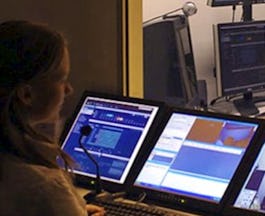Filter by
The language used throughout the course, in both instruction and assessments.
Results for "knowledge+generation+through+research"

University of Minnesota
Skills you'll gain: Human Computer Interaction, People Analysis, Research and Design, User Experience, User Research

University of California San Diego
Skills you'll gain: User Experience, User Research
 Status: Free
Status: FreeVanderbilt University

Politecnico di Milano

Technion - Israel Institute of Technology
Skills you'll gain: Creativity, Entrepreneurship, Research and Design, Planning

University of Virginia Darden School Foundation

Queen Mary University of London
Skills you'll gain: Exploratory Data Analysis, Market Research, Critical Thinking, Data Management, Research and Design, User Experience, Business Communication, Customer Analysis, Data Analysis, Data Structures, Experiment

Michigan State University
Skills you'll gain: Journalism
 Status: Free
Status: FreeUniversity of Copenhagen
Skills you'll gain: Data Analysis, Data Management, Customer Analysis, Data Mining, Decision Making, Leadership and Management, Machine Learning, Media Strategy & Planning, People Analysis, Social Media, Critical Thinking
 Status: Free
Status: FreeThe University of Tokyo

Coursera Project Network
Skills you'll gain: Critical Thinking, Microsoft Excel, Storytelling
In summary, here are 10 of our most popular knowledge+generation+through+research courses
- User Research and Design: University of Minnesota
- User Experience: Research & Prototyping: University of California San Diego
- Generative AI for University Leaders : Vanderbilt University
- Being a researcher (in Information Science and Technology): Politecnico di Milano
- Cracking the Creativity Code: Discovering Ideas: Technion - Israel Institute of Technology
- Building Generative AI Capabilities: University of Virginia Darden School Foundation
- Research Methodologies: Queen Mary University of London
- Gathering and Developing the News: Michigan State University
- Gen AI for Code Generation for Python: Edureka
- Data Literacy – What is it and why does it matter?: University of Copenhagen











